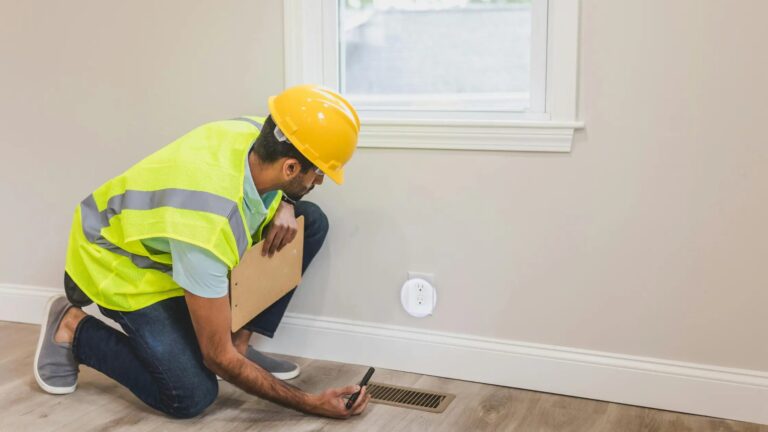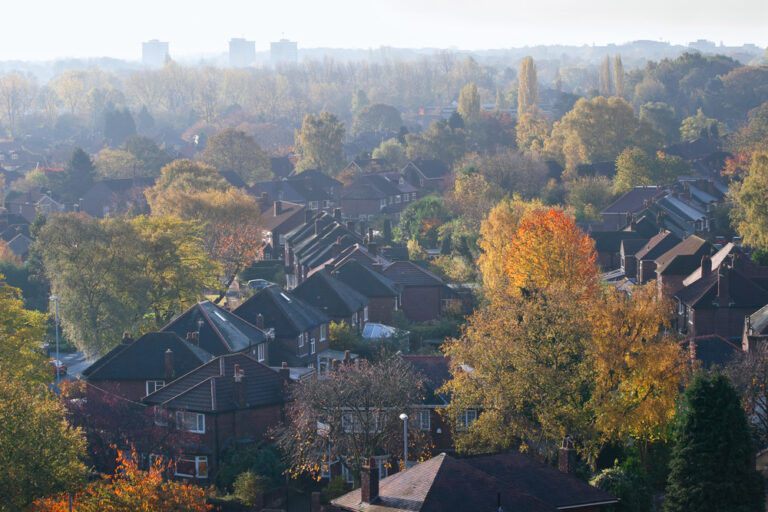House inspections are an important part of the lettings process. Not only are they necessary for checking the condition of your property, they are a great opportunity to catch up with your tenants and discuss any issues they may have.
Parkers have been managing property lets for decades and along the way, we’ve learnt a thing or two about how to run a successful property inspection. Here we’ll reveal everything landlords need to know about property inspections, with tips on getting the most out of yours.
Find out about our letting services
What is a property inspection?
Property inspections are a necessary part of letting a property. They allow you or your agent to check that your tenant is upholding the terms of the tenancy agreement and protecting your investment for the years ahead.
Inspections are also a chance to:
-
Check how well your tenant is looking after the property.
-
Look at their living conditions – are they tidy and hygienic?
-
Address any maintenance and safety issues.
-
Foster open communication channels.
-
Look out for any illegal activities.
-
Speak to the neighbours and address any issues.
Why is a property inspection important?
Property inspections will help you to provide a safe and compliant property for your tenants, reducing potential risks and supporting their overall well-being.
Regular checks are crucial for identifying maintenance tasks too. Although tenants are required to flag these problems as soon as they’re noticed, this doesn’t always happen. A thorough property inspection, carried out by an experienced agent or landlord, can highlight any issues before they become too difficult – and expensive – to fix.
What are the laws around landlord’s property inspections?
There’s a general code of etiquette that landlords should observe during a tenancy, which prevents them from carrying out too many inspections, and not giving enough notice for these.
The 1988 Housing Act gives a tenant the right to live, undisturbed, in a property for an agreed amount of time and for an agreed amount of rent. The tenant has the right to ‘quiet enjoyment’, which means the right to make use of their home without disturbance from the landlord or anyone acting on their behalf.
When can a property inspection be carried out
Although property inspections are a vital part of lettings, to maintain a good landlord-tenant relationship, it’s important not to overdo them.
So, how often should landlord inspections be carried out? Typically, inspections are carried out every three, four, or six months, as this will allow landlords to see if the colder, or warmer, weather is causing or revealing problems, such as damp and condensation.
How to inform your tenant of an inspection
Landlords and letting agents should always send an inspection letter or email whenever they need to enter a tenant’s home. It’s important to have this in writing in case your tenant refuses entry.
Preferably, your notice should be sent well in advance to allow the tenant ample time to prepare. Most landlords aim for at least a week. That said, the law stipulates that landlords should give at least 24-hours notice before entering the property.
Do you always have to give notice to inspect a property?
In the case of an emergency, landlords can forgo the 24-hour notice, but it’s important to be clear about what is seen as an emergency. Plausible reasons could include:
-
The smell of gas.
-
A fire.
-
Urgent maintenance work to protect your tenants or the structure of the property.
-
A suspicion of dangerous or criminal activity in the premises.
It’s worth checking with your letting agent before you enter the building for their opinion on whether it’s justified.
What to look for in a home inspection
It’s up to the landlord to make sure their property complies with legal requirements and provides a safe living environment for their tenants.
During inspections, it’s important to:
-
Check the property and decide if any property and furniture repairs or replacements are needed.
-
Identify potential hazards, such as faulty smoke alarms or electrics.
-
Check that the tenant is complying with the lease agreement.
It’s also an opportunity to check-in with your tenants and address any issues they may have.
What to do if a tenant fails their inspection
If your property inspection alerts you to any issues with how your tenants are caring for your property, it’s important to act quickly and measuredly. Here’s how to approach the situation:
Share your concerns with your tenants
At the inspection, explain your concerns to your tenants in a calm and sympathetic manner, explaining why rectifying the situation is important, not just to you but to them. For instance, if the property isn’t clean, explain that this could lead to a mice or insect infestation which would be a danger to their health.
You are well within your rights to make suggestions about how the property could be looked after so be proactive in your approach. Remember to remain calm and empathetic to your tenants’ situation.
Arrange another inspection
Give your tenants the time and space to take your comments on board and rectify the situation. Depending on the extent of your concern, it may be wise to schedule another property inspection before your next scheduled appointment. However, make sure you agree to this with your tenants and seek the advice of a letting agent ahead of your next visit.
Use your landlord insurance
Landlord insurance could safeguard you from the expense incurred by damage to your property from tenants. Your local branch will be able to recommend a provider and package to use that suits your circumstances.
Need more landlord advice? Work with Parkers today.
When you work with Parkers, we’ll manage your property inspections for you. Find out about our range of managed letting services today.







